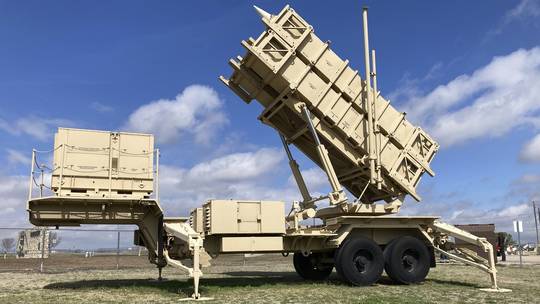Despite recent reports suggesting a halt in American arms deliveries to Ukraine, U.S. Secretary of State Marco Rubio has firmly denied any long-term suspension of assistance.
 |
| U.S Military Aid to Ukraine Continues , Rubio Clarifies Amid Temporary Pause Review |
A Temporary Pause, Not a Halt
Last week, defense officials confirmed that the flow of some critical munitions—including air defense interceptors and artillery rounds—had been temporarily suspended. The move, reportedly ordered by Defense Secretary Pete Hegseth without prior consultation with NATO allies or Congress, sparked concern among European partners and frustration in Ukraine.
However, Rubio sought to clarify the situation, calling it a “mischaracterization” to suggest aid had been broadly cut off.
“This was a pause pending review—a very limited one—on a handful of specific munitions,” he explained during a press briefing. “The goal was simply to ensure our own stockpiles remain adequate for global commitments.”
He emphasized that the vast majority of U.S. military assistance has continued without interruption, following previously established schedules.
Defensive Support Remains a Priority
Rubio highlighted that much of the aid provided to Ukraine is defensive, designed to protect cities and critical infrastructure from Russian missile and drone attacks. Among the most urgently needed systems, he noted, are additional Patriot missile batteries, which have played a crucial role in intercepting incoming strikes.
This week, reports surfaced that the White House had approved the transfer of ten more Patriot interceptors to Ukraine. Given that each interceptor costs roughly $4 million—and multiple rounds are often required to neutralize a single threat—the commitment, while welcome, underscores the high-stakes nature of modern air defense.
Broader Context: U.S. Support Under Scrutiny
The recent delay marks the third suspension of arms shipments since the current administration took office. While American officials have repeatedly affirmed their commitment to Ukraine, debates over the scale and sustainability of aid have intensified.
Defense Secretary Hegseth, a known skeptic of prolonged military assistance to Kyiv, has faced criticism for unilateral decision-making that some argue undermines allied coordination. Meanwhile, President Trump has acknowledged the challenges of supplying advanced systems like the Patriot, calling them “very rare” and “very expensive.”
Global Implications and European Concerns
The pause in deliveries has raised questions about the long-term reliability of U.S. backing, particularly as Ukraine braces for intensified Russian offensives. European leaders, already navigating their own arms production challenges, worry that any sustained reduction in American support could shift more of the burden onto NATO partners.
Still, Rubio’s reassurances suggest that while logistical reviews may cause short-term delays, the overall pipeline of aid remains intact. As the conflict drags on, the balance between maintaining Ukraine’s defenses and safeguarding U.S. military readiness will likely remain a delicate diplomatic and strategic issue.
Looking Ahead
For now, Kyiv continues to receive the bulk of promised weapons and equipment, though the debate over future assistance is far from settled. With Russia adapting its tactics and Ukraine relying heavily on Western-supplied arms, the coming months could prove decisive—not just on the battlefield, but in the political arenas shaping the flow of military aid.
As Rubio put it: “This wasn’t a stoppage—it was a brief check to ensure we’re allocating resources wisely. The support for Ukraine’s defense hasn’t wavered.”
Whether that message reassures allies—or merely highlights the growing complexities of sustaining Ukraine’s war effort—remains to be seen.
